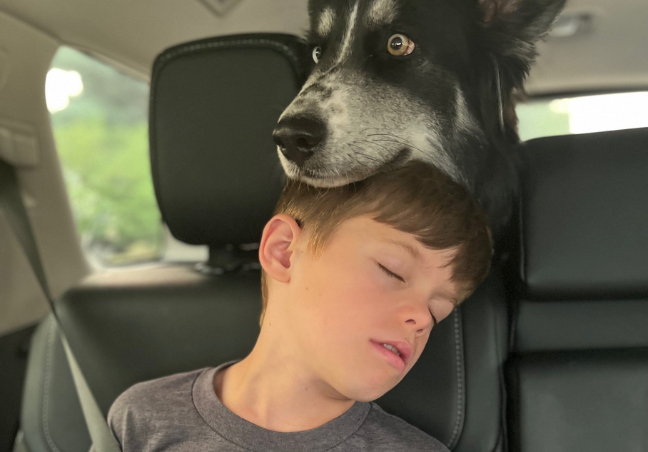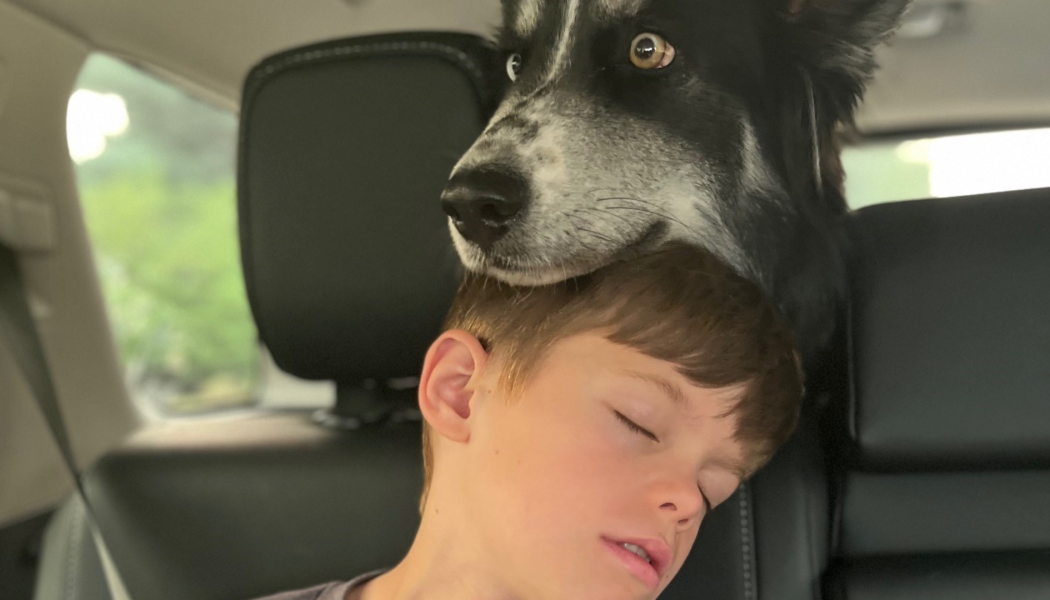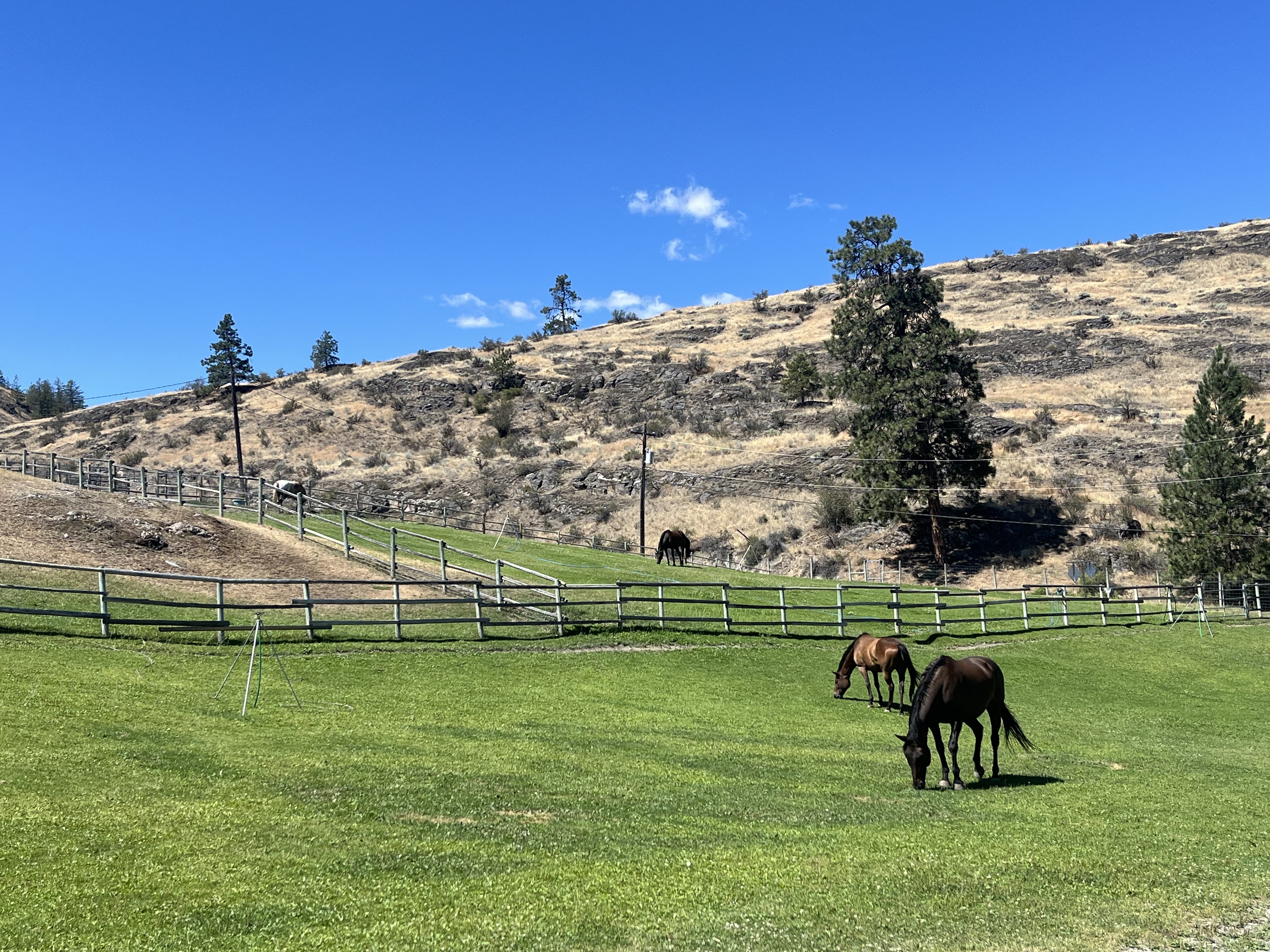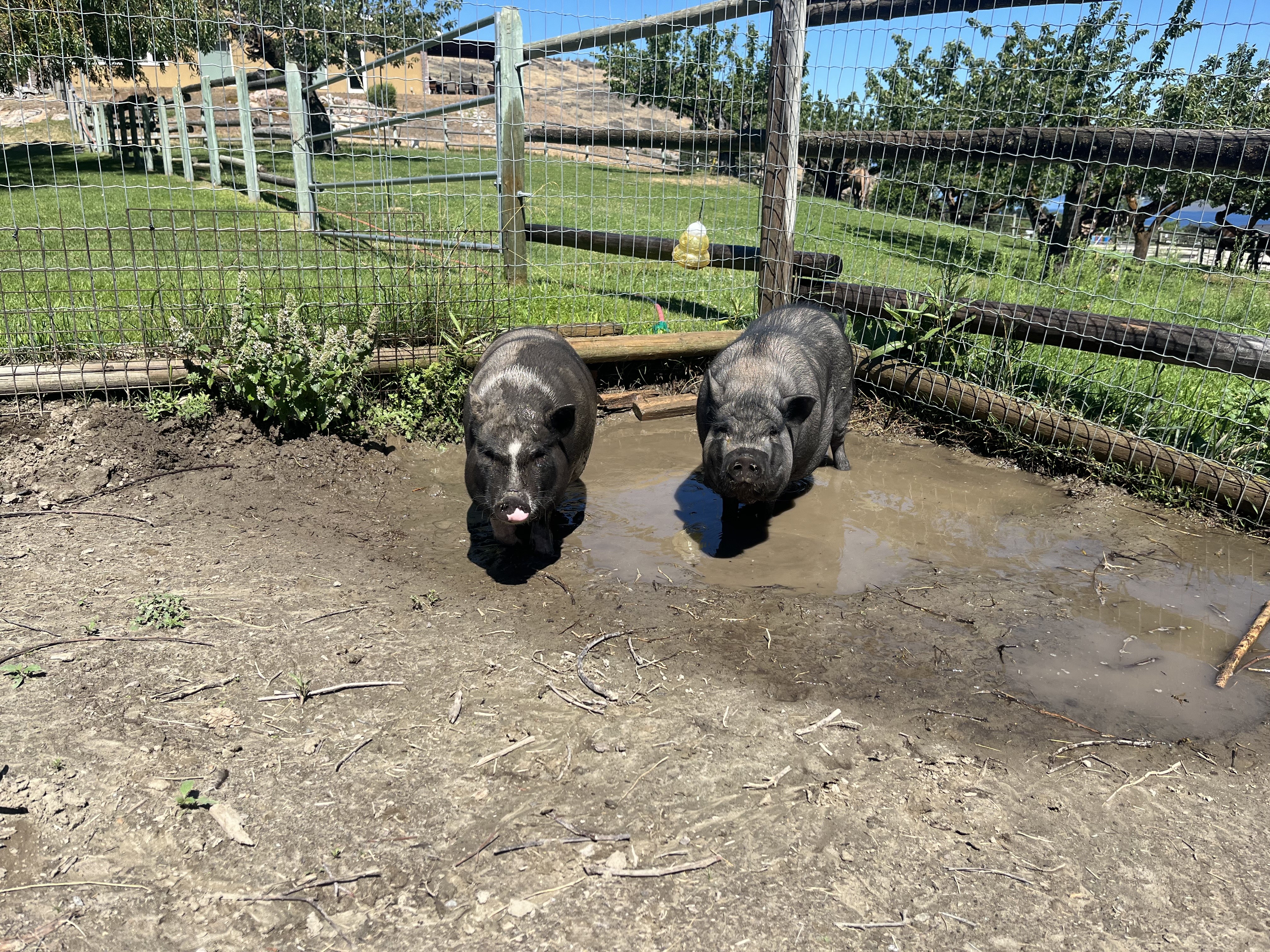In August 2023, with the McDougall Creek Wildfire at their doorstep, Interior Health employee Andrea, her husband and young son Ethan were ordered to evacuate their home. They were among the more than 10,000 people who had to quickly leave their Kelowna community.
When they left in vehicles crammed with all they could pack, Orca and Nelson were also on board.
Orca, a shepherd mix, and Nelson, their cat, have been beloved members of Andrea's family for 10 years. “In the chaos of leaving our home, we nearly forgot Nelson's litter box,” recalls Andrea. “It might seem insignificant during an evacuation, but there aren’t really any alternatives to a litter box for a house cat.
“This experience taught me the importance of planning ahead for our pets as well as ourselves.”


















